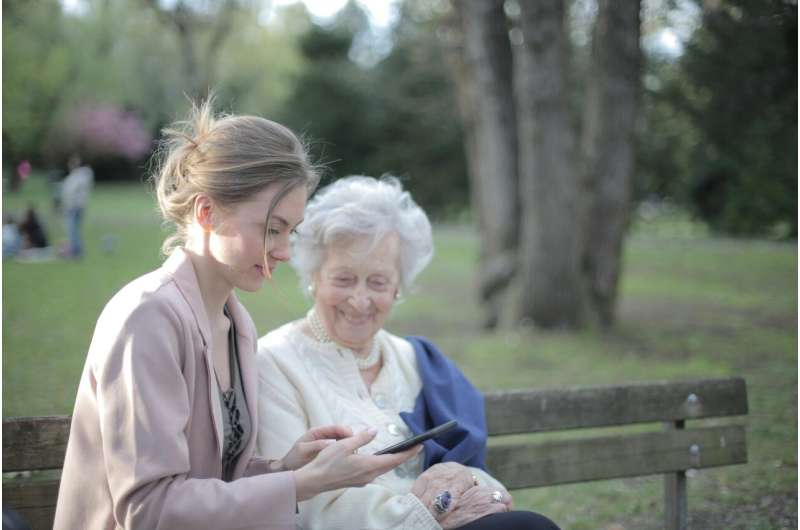This article has been reviewed according to Science X's editorial process and policies. Editors have highlighted the following attributes while ensuring the content's credibility:
fact-checked
peer-reviewed publication
trusted source
proofread
How perceived age impacts dementia caregivers and their loved ones

The felt age of spousal caregivers is connected to the felt age of their loved ones living with dementia, according to a study from the University of Surrey. This perceived age in people with dementia and their caregivers is related to their own well-being, satisfaction with life, and self-confidence. The study has been published by The Journals of Gerontology, Series B: Psychological Sciences
Felt age is defined as how old someone feels compared to their real age. It's measured by asking people to report whether they feel younger, the same, or older than their actual age. This concept helps understand how people see their own aging, which can affect their mental and physical health and predict important health outcomes, including mortality.
Dr. Serena Sabatini, first-author of the study from the University of Surrey, said, "Understanding the interconnectedness of felt age between people with dementia and their spousal caregivers is crucial.
"Our findings highlight the importance of relationship quality in aligning perceptions of aging. Our research suggests that caregivers' younger felt age may positively influence the well-being of people with dementia.
"This underscores the need for interventions and policies that support both caregivers and care recipients, fostering healthier aging experiences and enhancing the quality of life within these caregiving relationships."
Surrey's researchers examined data from the British IDEAL study undertaken between 2014 and 2016. The data includes 1,001 pairs of people living with dementia and their spouses. Participants' ages ranged from 41 to 95 years. The majority of people with dementia were men, whereas the majority of spousal caregivers were women.
The research team measured how old each person felt and assessed their relationship quality, well-being, life satisfaction, and self-confidence.
The researchers used linear regression analyses to determine the connection between the felt ages of the people with dementia and their spouses. They also employed the Actor-Partner Interdependence Model (a method to understand how one person's feelings and behaviors are related to other variables in their partner) to see if the quality of their relationship influenced this connection and if a person's felt age was related to their partner's mental and emotional health.
This scientific approach allowed the team to understand how the feelings and perceptions of aging are shared and may influence each other within these caregiving relationships.
Dr. Sabatini added, "Our research also found that the quality of the caregiving relationship plays a significant role. Caregivers who reported better relationship quality tended to have a felt age much more similar to that of the person with dementia than those with bad relationships. This suggests that the caregiver and person with dementia perceive their aging more similarly when they have a close relationship.
"By fostering positive interactions and mutual understanding, we can potentially improve the mental and emotional health of both caregivers and those with dementia."
More information: Serena Sabatini et al, Correlates of felt age in caregivers of people with dementia: findings from the IDEAL study, Frontiers in Psychology (2024). DOI: 10.3389/fpsyg.2023.1287842


















